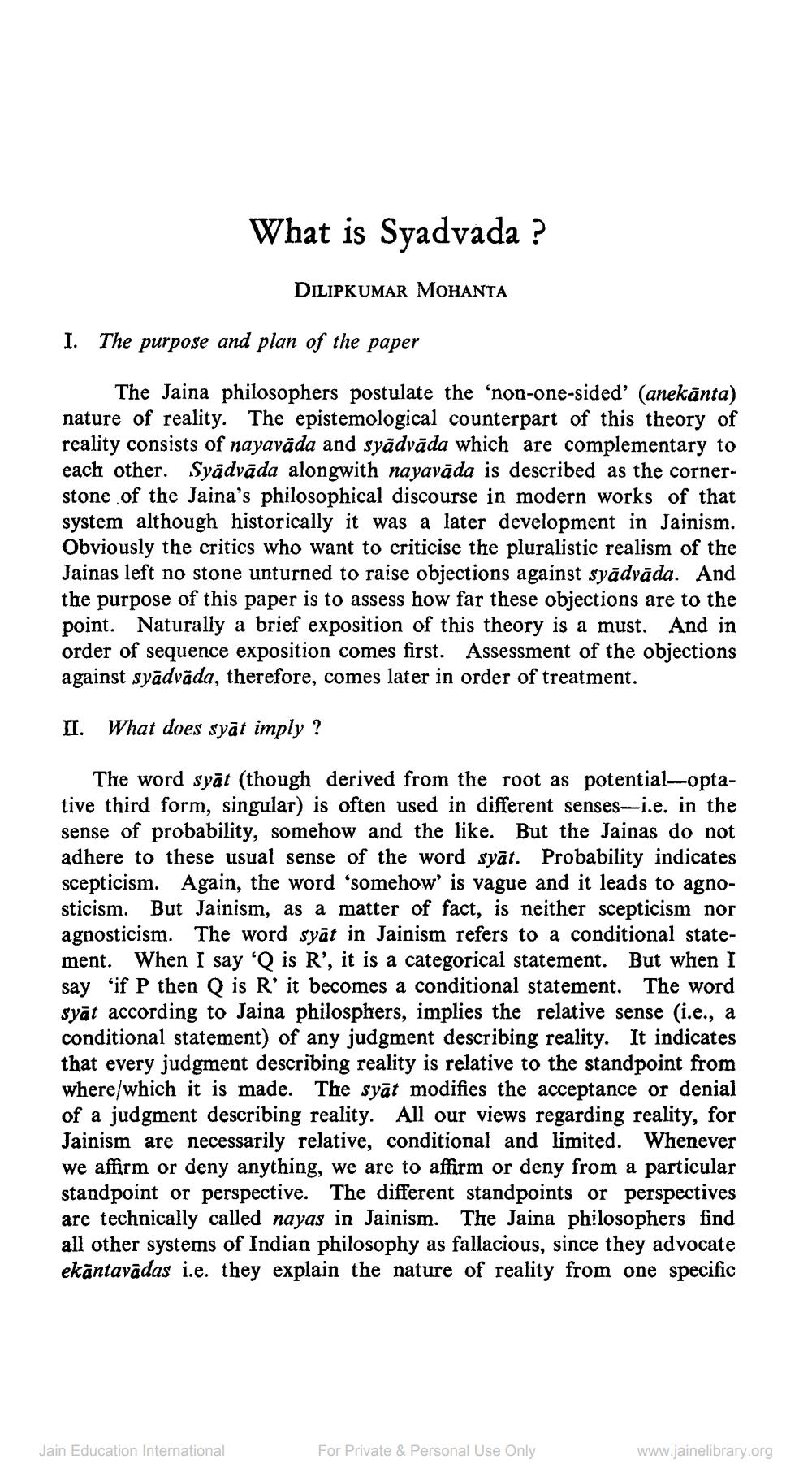Book Title: Jain Journal 1985 07 Author(s): Jain Bhawan Publication Publisher: Jain Bhawan Publication View full book textPage 7
________________ What is Syadvada? DILIPKUMAR MOHANTA I. The purpose and plan of the paper The Jaina philosophers postulate the 'non-one-sided' (anekānta) nature of reality. The epistemological counterpart of this theory of reality consists of nayavada and syādvāda which are complementary to each other. Syādvāda alongwith nayavāda is described as the cornerstone of the Jaina's philosophical discourse in modern works of that system although historically it was a later development in Jainism. Obviously the critics who want to criticise the pluralistic realism of the Jainas left no stone unturned to raise objections against syādvāda. And the purpose of this paper is to assess how far these objections are to the point. Naturally a brief exposition of this theory is a must. And in order of sequence exposition comes first. Assessment of the objections against syādvāda, therefore, comes later in order of treatment. II. What does syat imply? The word syat (though derived from the root as potential-optative third form, singular) is often used in different senses-i.e. in the sense of probability, somehow and the like. But the Jainas do not adhere to these usual sense of the word syat. Probability indicates scepticism. Again, the word 'somehow' is vague and it leads to agnosticism. But Jainism, as a matter of fact, is neither scepticism nor agnosticism. The word syat in Jainism refers to a conditional statement. When I say 'Q is R', it is a categorical statement. But when I say 'if P then Q is R' it becomes a conditional statement. The word syat according to Jaina philosphers, implies the relative sense (i.e., a conditional statement) of any judgment describing reality. It indicates that every judgment describing reality is relative to the standpoint from where/which it is made. The syāt modifies the acceptance or denial of a judgment describing reality. All our views regarding reality, for Jainism are necessarily relative, conditional and limited. Whenever we affirm or deny anything, we are to affirm or deny from a particular standpoint or perspective. The different standpoints or perspectives are technically called nayas in Jainism. The Jaina philosophers find all other systems of Indian philosophy as fallacious, since they advocate ekāntavādas i.e. they explain the nature of reality from one specific Jain Education International For Private & Personal Use Only www.jainelibrary.orgPage Navigation
1 ... 5 6 7 8 9 10 11 12 13 14 15 16 17 18 19 20 21 22 23 24 25 26 27 28 29 30 31 32 33 34 35 36
